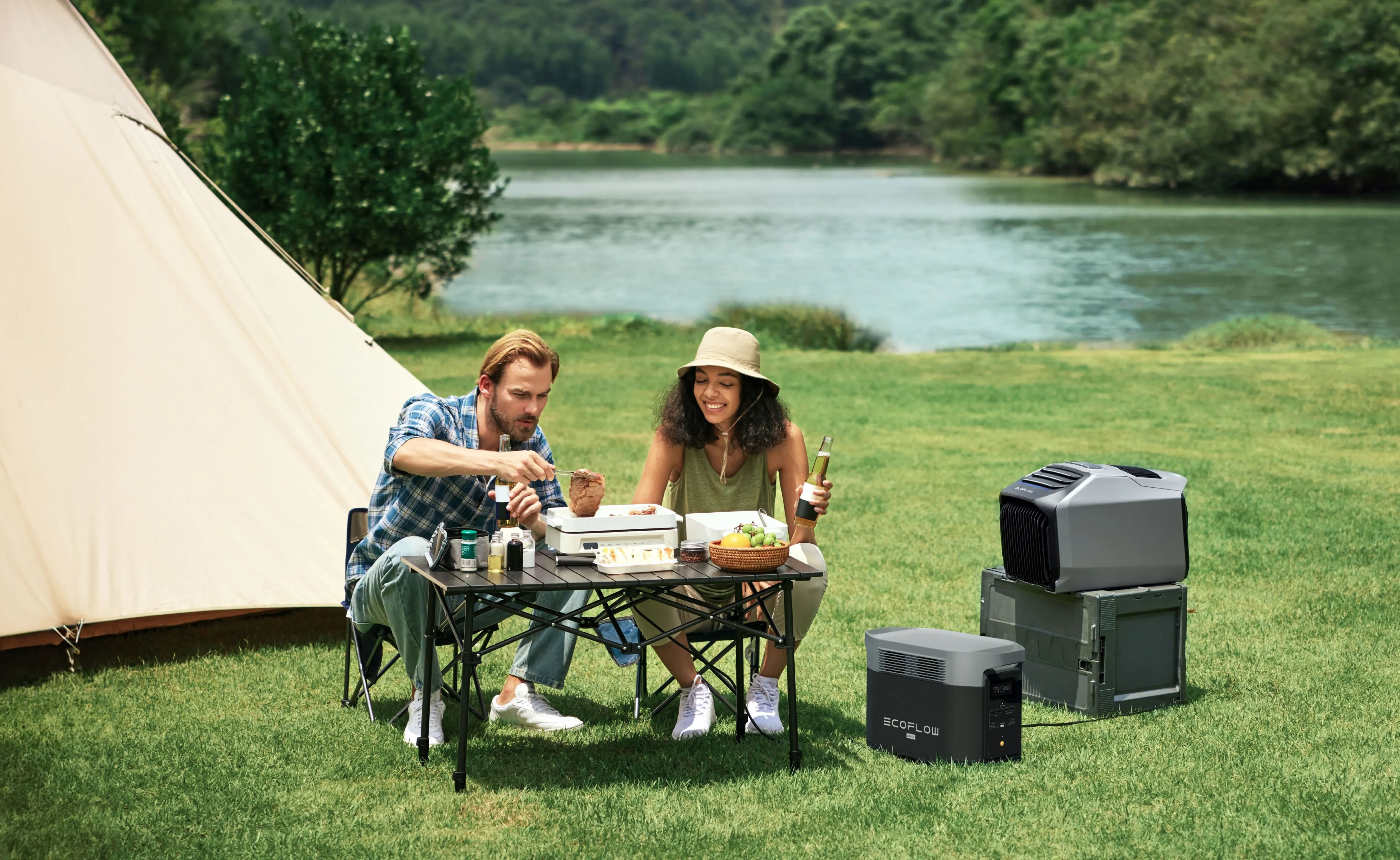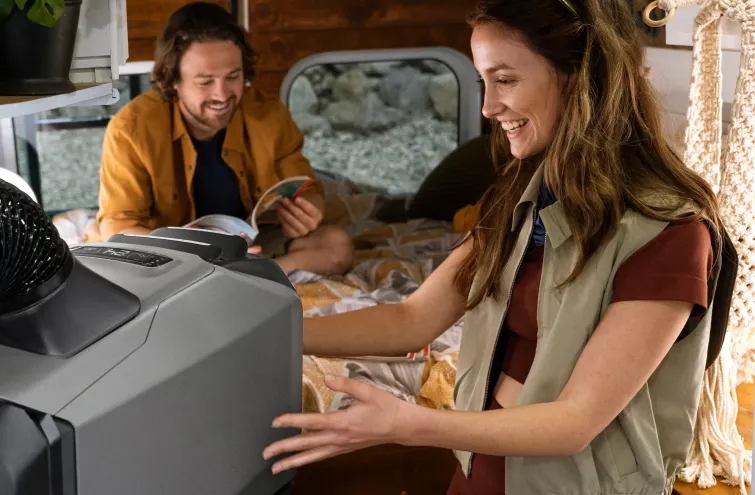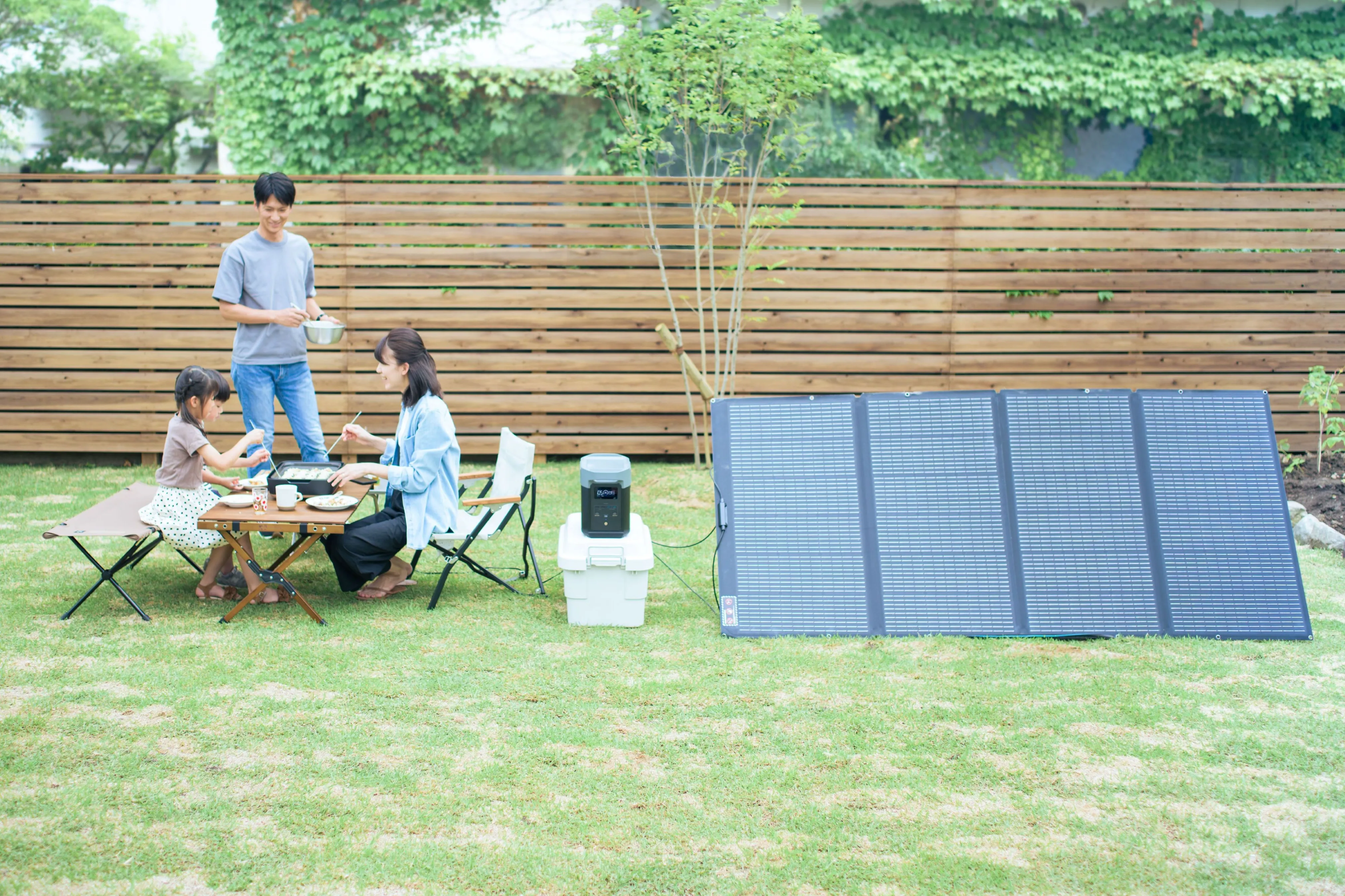Camping in Winter Ontario: Tips for Warm and Safe Adventure
Ontario’s vast wilderness takes on an entirely different kind of beauty in winter, frozen lakes glimmer under pale sunlight, forests stand hushed beneath heavy snow, and trails once crowded in summer become silent pathways through a pristine landscape. For those willing to brave the cold, winter camping here offers solitude, challenge, and an intimacy with nature that few other seasons can match. While it’s not for the unprepared, the rewards are immense: crisp air, star-filled skies, and the calm of a world slowed by snow. If you’re ready to swap mosquitoes and crowds for frozen lakes and quiet mornings, this guide will help you prepare for a warm, safe, and unforgettable winter camping adventure in Ontario.
Benefits of Camping in Winter in Ontario
Winter camping in Ontario may sound daunting at first, but that’s exactly what makes it so rewarding. When most people stow away their tents for the season, those who stay discover a quieter, purer version of the wilderness, one where frozen lakes glisten in the sunlight and the only sounds are the crunch of snow underfoot and the distant call of a raven. Embracing the cold opens the door to a peaceful, crowd-free outdoor experience that simply can’t be found during the warmer months.
Fewer Crowds and More Privacy in Ontario Parks
Gone are the summer traffic jams and packed campsites. Winter transforms even Ontario’s busiest destinations, like Algonquin, Pinery, and Silent Lake, into calm, secluded retreats. With fewer visitors, you’re free to choose prime campsites, move at your own pace, and savour moments of complete solitude. It’s a rare feeling in today’s busy world, like having the entire park to yourself.
Unique Winter Landscapes and Activities
Ontario’s landscapes take on a whole new personality in winter. Forests sparkle under frost, waterfalls freeze mid-cascade, and lakes turn into natural skating rinks. Campers can trade hiking boots for snowshoes, glide along cross country ski trails, or explore the famous skating loops at Arrowhead Provincial Park. The soft light and snow-draped scenery make every view feel like a postcard, especially for photographers chasing that true northern magic.
Affordable Campsite Fees and Easier Reservations
If summer camping feels impossible to book, winter offers the opposite experience. Campsites and roofed accommodations are often available at reduced rates, and reservations rarely require months of planning. Whether you’re eyeing a heated yurt in Killarney or a cabin near Lake Superior, winter brings flexibility and affordability, perfect for spontaneous weekend getaways.
Best Winter Camping Options Across Ontario
Ontario’s diverse geography and varied winter conditions create the perfect environment for all types of campers. Whether you’re a seasoned backcountry enthusiast or someone just starting to explore the winter wilderness, Ontario offers a range of accommodations to suit every comfort level. From the minimalist experience of tent camping to the cozy warmth of heated shelters, the right choice of base camp makes all the difference in how you enjoy the season.


Winter Yurt Camping Ontario: Cozy and Convenient
For those who crave the wilderness experience without the full commitment of freezing temperatures in a tent, winter yurt camping in Ontario offers the ideal balance. Yurts, such as those at MacGregor Point and Killarney Provincial Park, are a fantastic option for staying warm while still being immersed in nature. These round, semi permanent structures typically feature heaters, comfortable beds, and even electricity, making them a cozy, convenient base camp. After a day of cross-country skiing or snowshoeing, retreat to your yurt where you can warm up, dry your gear, and relax in comfort.
Year-Round Campgrounds Ontario: Where You Can Stay Anytime
Not all winter camping requires roughing it. Many private operators across Ontario offer year round campgrounds, providing a more comfortable option for those who want access to modern amenities in the midst of nature. These campgrounds typically include services such as full RV hookups and heated washroom facilities, making them perfect for families or beginners who might prefer a little more support while still enjoying the outdoors. Even in the dead of winter, these campgrounds ensure you can enjoy the beauty of Ontario’s wilderness without sacrificing comfort.
Best Ontario Provincial Parks for Winter Camping
Ontario’s provincial parks are the perfect destinations for adventurous winter campers. Parks like Algonquin’s Mew Lake Campground, Killarney, Pinery, and Silent Lake are known for their well maintained winter facilities, including plowed campsites, heated shelters, and cross country ski trails. Whether you prefer a yurt, cabin, or a more traditional camping experience, these parks offer something for everyone. They provide an excellent opportunity to experience the natural beauty of Ontario during the winter months, complete with the chance to enjoy snow-covered landscapes, wildlife sightings, and pristine lakes in total tranquility.
How to Prepare for Camping in Winter in Ontario
When it comes to winter camping in Ontario, preparation is everything. Ontario’s winter temperatures can drop dramatically, often reaching -10℃ (14℉) or colder overnight, and sometimes even lower. Whether you're venturing into the wilds of Algonquin or heading to a secluded cabin in the North, the right gear and careful planning are essential for a successful and safe trip. Essential equipment includes a four-season tent for those braving the elements, a high-quality winter sleeping bag rated for at least -20℃ (-4℉), and insulated clothing layers to keep you warm. You'll also need a reliable stove for hot meals, and a power bank for camping or a portable power station to keep your devices charged and heating equipment running through the cold nights.
Choosing the Right Shelter: Tent, Yurt, or Cabin
Your shelter will be your first line of defense against the harsh winter temperatures. The choice between a tent, yurt, or cabin will depend on your preferences and the level of comfort you're seeking. If you opt for tent camping, ensure it's a four-season tent built to withstand the elements. Consider adding a tarp to create a windbreak and an extra ground cloth for insulation. Yurts and cabins provide an extra layer of comfort, as they typically come with insulation, heating, and shelter from the elements, although they still require warm bedding and additional heat sources to stay comfortable. Regardless of your choice, maximizing internal warmth will be key to ensuring you stay safe and cozy during your winter camping adventure


Staying Warm: Layering, Sleeping Bags, and Heating Options
When winter camping, layering your clothing is essential to staying warm. A three layer system, base layer (wool or synthetic), middle insulating layer, and an outer shell, is the most effective way to regulate body temperature. A high quality sleeping bag rated for at least -20℃ (-4℉) is a must, paired with a high R-value sleeping pad to insulate you from the frozen ground. If temperatures dip further, consider a supplemental heat source like a certified tent-safe propane heater or electric blankets to ensure you stay comfortable at night.
Managing Food and Water in Freezing Conditions
Dealing with food and water in freezing conditions requires some foresight. Water bottles should be stored upside down, which helps prevent the neck from freezing, and should be kept inside your sleeping bag or insulated tote overnight. Melting snow is another option, but keep in mind that it requires extra time and fuel. When it comes to food, go for calorie dense, easy to prepare meals that won’t take too long to cook in the cold. Many campers rely on dehydrated meals, which are lightweight and efficient for winter camping.
Reliable Power Supply for Winter Nights
Ontario’s winter nights can be long and cold, so keeping essential devices running, like heating blankets, small heaters, or lights, requires a stable and reliable power source.
The EcoFlow DELTA 2 Max Portable Power Station is an excellent choice for winter camping in Ontario. Known for its impressive battery capacity, it can power multiple devices simultaneously, making it perfect for keeping your heating and lighting going through the night. Whether you're heating up your tent, lighting up your campsite, or cooking a meal, this portable power station ensures you have the energy you need to stay comfortable and safe, even during Ontario's harshest winters.
Essential Winter Camping Safety Tips
Camping in Ontario’s winter wonderland can be exhilarating, but it also comes with risks that demand serious preparation and caution. When the temperatures plunge and snow blankets the wilderness, safety isn’t optional, it’s the foundation of a successful trip. Knowing how to respond to emergencies, prevent common dangers, and protect yourself against the elements can make all the difference between a memorable adventure and a hazardous ordeal.
Watch Out for Frostbite and Hypothermia
Frostbite and hypothermia are the two most common and serious threats when camping in freezing temperatures. Recognizing their early warning signs, such as shivering, slurred speech, clumsiness, and numb skin can be life saving. Dress in multiple dry layers, avoid sweating by regulating your pace, and take frequent breaks to check on yourself and your group. If you feel a sustained chill or notice disorientation, get into a sheltered, warm environment immediately. A simple lapse in body temperature regulation can quickly turn dangerous in the Ontario wilderness.
Keep Devices Charged for Emergency Communication
When camping in remote regions, staying connected can save your life. Always keep your communication devices, phones, radios, GPS units, and portable power stations fully charged. Cold weather drains battery life quickly, so keep them close to your body or inside your sleeping bag to maintain warmth. Portable power stations like the EcoFlow DELTA 2 Max provide reliable backup power for extended trips, ensuring you can make emergency calls or send your location even when far from civilization.
Avoid Carbon Monoxide from Fuel Heaters
Fuel powered heaters and stoves can make winter camping far more comfortable, but they also introduce the risk of carbon monoxide poisoning. This odourless, colourless gas is deadly in enclosed spaces. Always ensure proper ventilation in your tent, yurt, or cabin, and use a battery powered carbon monoxide detector for peace of mind. Keep fuel burning devices outside or near ventilation openings, and never leave them running unattended.
Plan Your Route and Check Weather Forecasts
Ontario’s winter weather can change dramatically within hours, turning a pleasant hike into a whiteout. Before heading out, map your route carefully and share your itinerary, including your destination, trail route, and expected return time with someone you trust. Always check updated weather forecasts and be prepared to delay or cancel your trip if conditions deteriorate. In the Canadian Shield or northern regions, storms can roll in suddenly, bringing high winds, deep snow, and subzero wind chills, conditions that can quickly overwhelm even experienced campers.
Pro Tips for Comfortable Winter Camping
Once you’ve mastered the basics of winter camping safety, the next step is learning how to make the experience genuinely enjoyable. Comfort in the cold comes down to smart preparation and a few thoughtful touches that turn a rugged trip into a memorable retreat. With the right setup, you can stay warm, relaxed, and even indulge in a bit of luxury while surrounded by Ontario’s snow covered wilderness.


Insulate Your Tent and Use Ground Mats
Staying warm begins with insulation. Line the interior of your tent with reflective blankets or emergency foil sheets to trap heat and bounce it back inside. Adding a thick rug, foam mat, or even a layer of pine boughs beneath your sleeping area will greatly reduce heat loss through the frozen ground. This not only makes a noticeable difference in temperature but also adds comfort underfoot, turning your cold tent floor into a cozy, insulated base.
Keep Batteries and Electronics Warm
Cold weather is notorious for draining batteries quickly, so keeping your electronics warm is essential. Store your phone, headlamp batteries, and power banks in an inside jacket pocket during the day and tuck them into your sleeping bag at night. For gear that needs to stay powered, an external power source like the EcoFlow DELTA 2 Max provides stable, temperature protected energy even in freezing conditions, ensuring your lights and communication devices remain operational throughout the night.
Use Eco-Friendly Power and Lighting Options
One of the joys of winter camping in Ontario is the peaceful silence of nature. To maintain that tranquility, choose eco friendly, low noise power options. Portable stations like EcoFlow’s lineup run silently and produce zero emissions, keeping the air clean while ensuring you have dependable power for lighting, cooking, or charging equipment. They’re a modern alternative to noisy gas generators, perfectly suited for the stillness of a snowy campsite.
Maintain a Warm and Comfortable Interior
Keeping a consistent, comfortable temperature inside your shelter can be tricky when the mercury dips. The EcoFlow WAVE 3 Portable Air Conditioner with Heater doubles as an efficient heater, providing steady warm air circulation even in subzero temperatures. Its low energy consumption and quiet performance make it ideal for tent, yurt, or cabin camping, helping you rest comfortably without the noise or fumes of traditional heaters.
Set Up a Safe Cooking Zone
Cooking safely in winter is just as important as staying warm. Never use propane or liquid fuel stoves inside your sleeping shelter due to carbon monoxide risks. Instead, create a designated cooking area outside or in a well ventilated shelter. Use a stable, fire resistant surface elevated off the snow to ensure steady heat for cooking. Not only does this setup keep you safe, but it also makes mealtime more enjoyable, because few things compare to a hot meal after a day exploring Ontario’s frozen trails.
Conclusion
Winter camping in Ontario is more than just a test of endurance, it’s an invitation to experience the Canadian wilderness at its most peaceful and pure. The quiet forests, frozen lakes, and snow-draped landscapes offer a kind of beauty and solitude that summer can’t match. With careful planning, the right gear, and a commitment to safety, even the coldest nights can become moments of calm and wonder. Investing in dependable power and heating tools, such as the EcoFlow DELTA 2 Max or EcoFlow WAVE 3, ensures you stay warm and connected without compromising the tranquility of nature. So, pack your layers, charge your batteries, and embrace the adventure. Ontario’s winter wilderness is waiting, ready to reward those who meet its chill with preparation, curiosity, and courage.
FAQ (Frequently Asked Questions)
Where can I go camping in Ontario during winter?
You can enjoy winter camping in several of Ontario’s provincial parks that stay open year-round, such as Algonquin (Mew Lake Campground), Killarney, Pinery, Silent Lake, and MacGregor Point. These parks maintain plowed roads, heated comfort stations, and sometimes even roofed accommodations like yurts or cabins. For those seeking a more unique experience, Ontario is also home to some of the best campgrounds and hidden gems that offer winter camping opportunities. For example, campgrounds like Bon Echo or Arrowhead Provincial Park provide a peaceful winter retreat with stunning snowy landscapes and excellent access to winter activities. Beyond the provincial system, many private campgrounds and RV parks across Ontario also remain open through the winter, offering full-service hookups, warm facilities, and easy access to snowshoeing or cross-country ski trails.
Are there year-round campgrounds in Ontario?
Yes. Ontario has a range of year round campgrounds that cater to winter adventurers. Some provincial parks like Algonquin’s Mew Lake, Pinery, and MacGregor Point, keep select sites open through the colder months, complete with plowed roads, heated washrooms, and electrical hookups. In addition, private campgrounds and RV parks across the province also operate year-round, often providing extra comforts like full service hookups, cozy cabins, or nearby access to winter recreation such as snowshoeing and ice fishing.
What is winter yurt camping in Ontario like?
Winter yurt camping in Ontario is a cozy and accessible way to experience the outdoors without sacrificing warmth or comfort. These round, insulated shelters, found in parks like Killarney, MacGregor Point, and Silent Lake, are equipped with heating, bunk beds, and electricity, offering a snug refuge after a day of exploring snow covered trails. It’s often described as winter glamping, giving you the full wilderness experience with modern comforts like lighting, outlets, and a solid floor beneath your feet. Perfect for families, beginners, or anyone who wants to enjoy winter camping without braving the cold in a traditional tent.
How do I stay warm while camping in winter in Ontario?
Staying warm while camping in an Ontario winter comes down to smart layering, proper insulation, and safe heat management. Dress in three layers, a moisture wicking base, an insulating middle (like fleece or down), and a waterproof outer shell to trap heat and stay dry. At night, use a sleeping bag rated for at least -20°C, paired with a high R-value sleeping pad to block the cold seeping up from frozen ground. For extra comfort, bring safe, supplemental heat sources such as an electric blanket or a certified indoor-safe heater powered by a reliable portable power station like the EcoFlow DELTA 2 Max, which ensures you stay warm through even the longest northern nights.